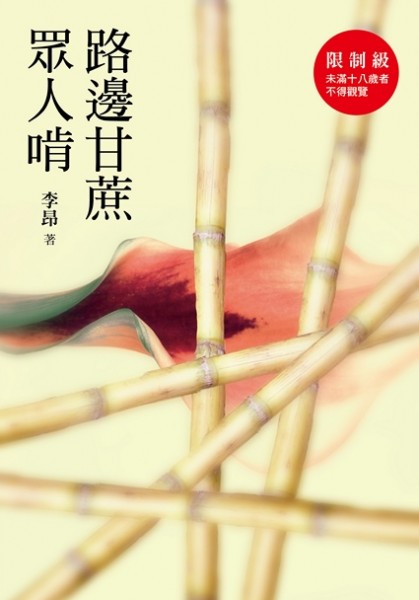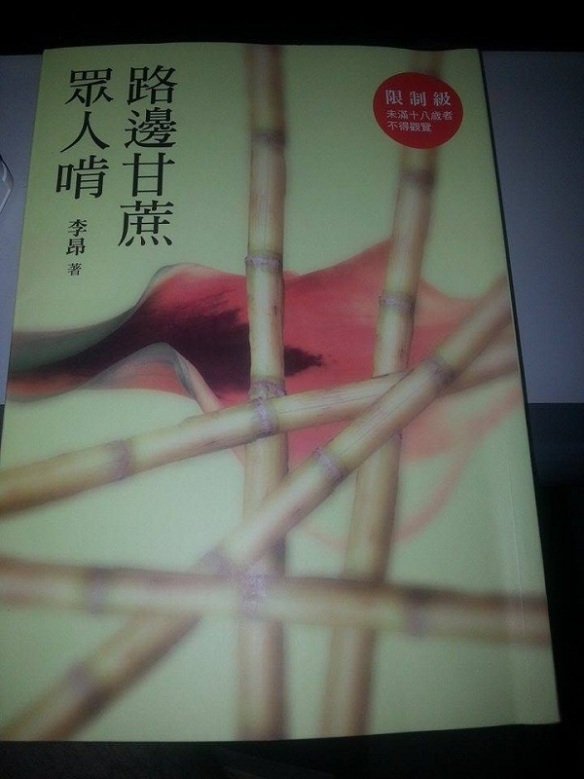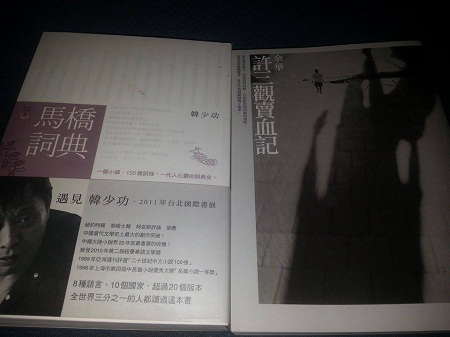Warning: there is adult content in this post.
This is Li Ang’s much anticipated follow up to her 1997 book Everybody sticks it in the Beigang Incense Burner (《北港香爐人人插》), which I’ve yet to read. At first glance it is an irreverent look at the misogynistic self-aggrandizement that characterizes the generation of democracy campaigners who rose to fame after being imprisoned in the martial law era in Taiwan, some of whom later formed the Democratic Progressive Party and went into government under former president Chen Shui-bian. The book also deals with the symptomatic nature of the way the February 28 incident and the White Terror continue to manifest themselves in the political arena. Although this might seem a rather obscure or outdated theme, it can give us an insight into the background of the political mindset in today’s Taiwan, particularly in light of the recent Sunflower Movement and the problems in governance that it has highlighted. The attempt to smear the participants of the Sunflower Movement in March and April as violent rioters, for example, is reminiscent of the Kuomintang’s rhetoric against democracy protesters during the 1980s and 1990s that features in the book.
The book centres around the life of Chen Junying (陳俊英) from his youth as a dissident during the Martial Law era, to his slow drift into irrelevance as a retired politician living in the US in his later years. Li Ang goes to great pains in the introduction, stating several times that the character isn’t based on any one person in particular – her protestations are so frequent however that it’s almost as if she’s prompting us to take this denial with a pinch of salt.
Chen feels owed by Taiwanese society and Taiwanese women in particular and he has a mantra that recurs throughout the book which rationalizes his misogynistic behavior:
(My translation) He was forever the one being let down, it wasn’t just the Taiwanese people who owed him, didn’t Taiwanese women owe him too‽ So it was natural for him to sleep with a good number of women when he came out of jail.
The book can be read as a satire up to a point and parts of it are quite funny, recalling the satirical bite of Wang Chen-ho’s Rose, Rose, I Love You /《玫瑰玫瑰我愛你》, like the protagonist’s assumption that he will ejaculate more than other men because of the years he spent in prison, and because he thinks so much of his own masculinity:
(My Translation) She discovered that Chen Junying was excessively liberal with toilet paper after making love. When he climaxed, he didn’t leave that much ejaculate in her (his sperm wasn’t particularly greater in volume than other men, nor did it smell fishier), and not much of it would drip out of her vagina after they’d finished, so one or two sheets of toilet paper would have been enough to absorb it all. He would grab a handful of tissue from the box, however, and pass her a pile, watching her as she meticulously wiped herself clean of any trace until all of the tissue was used up.
In the same vein, Chen takes a very chauvinistic attitude during sex, as, despite being reviled as a dissident by many women in his youth, he still finds time to grumble about the only girl who is willing to get together with him, and treats her with scorn, viewing her status as the product of a “mixed marriage” between a mainland soldier and an aborigine as below his – with a lot of his fellow dissidents using the phrase 「無魚蝦也好」 (bô hî, hê mā ho – If there’s no fish, you can make do with shrimp) to tease him
Continue reading



